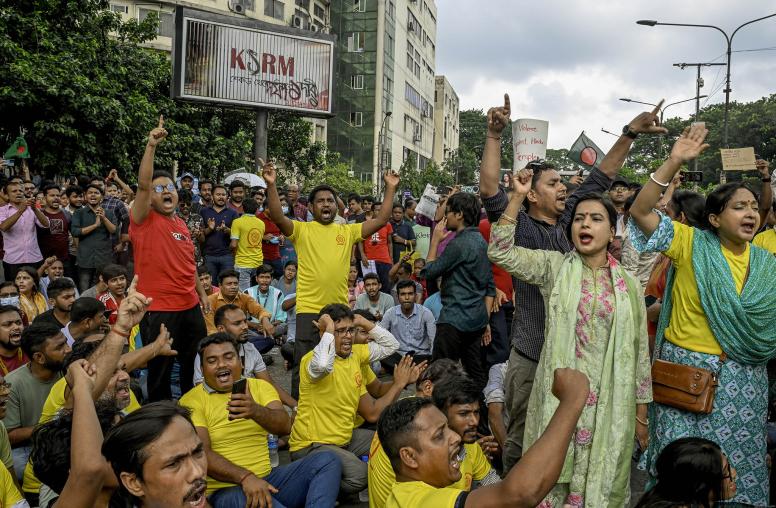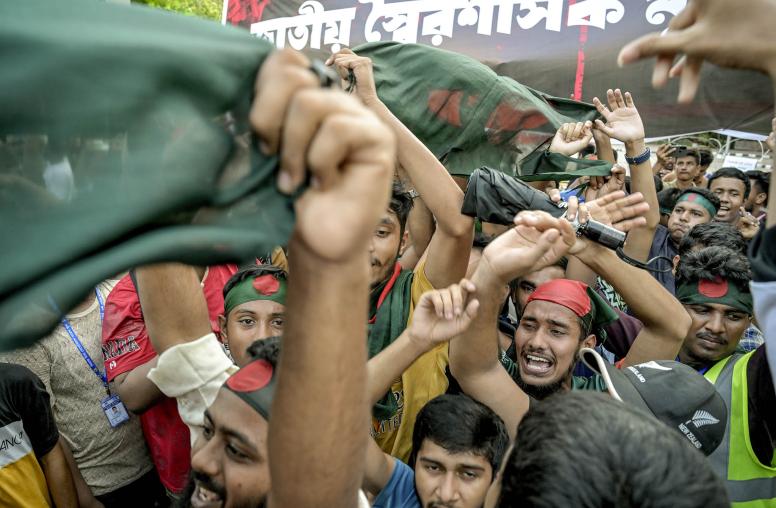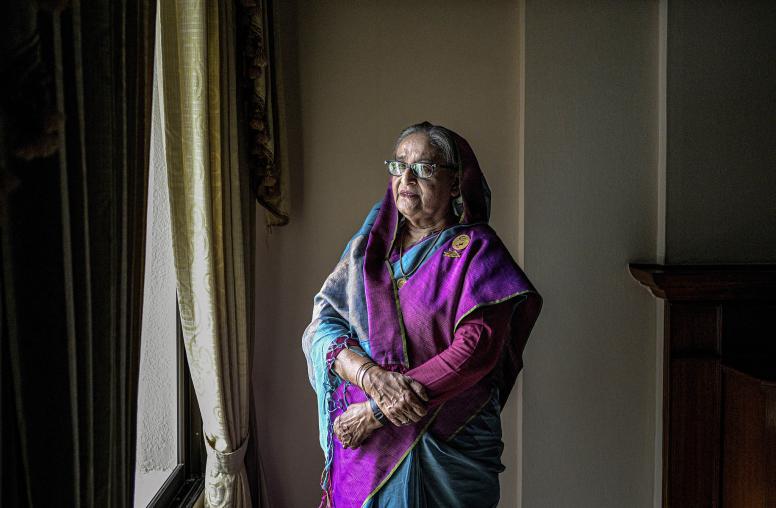Opposition Boycott Clears Path to a Fourth Term for Hasina in Bangladesh
Ruling Awami League’s dominance poses a challenge to the state of democracy in Bangladesh.
Bangladeshi Prime Minister Sheikh Hasina is set to win a fourth consecutive term in general elections on January 7. A boycott by the Bangladesh Nationalist Party (BNP), the South Asian nation’s main opposition party, will ensure the success of Hasina’s Awami League (AL) despite the grim economic state of the country.

USIP’s Geoffrey Macdonald discusses what’s at stake in the election, the state of democracy in Bangladesh and why the outcome of the vote will matter for the United States.
What were the main issues that dominated the election campaigns?
Macdonald: The campaign for Bangladesh’s next parliament closed on Friday. At the constituency level, candidates competed over issues such as controlling inflation, improving job opportunities, curbing corruption and improving government subsidies. But the issue that dominated Bangladesh’s campaign was the electoral process itself. The opposition Bangladesh Nationalist Party (BNP) premised its participation on the return of Bangladesh’s neutral caretaker government system, which the ruling party scrapped in 2011 after the supreme court controversially ruled it unconstitutional. The Awami League refused to reinstate the system, which led to the BNP’s election boycott. This stalemate over election administration consumed the campaign.
With the only viable opposition party off the playing field, the election outcome has become a fait accompli and citizen enthusiasm appears to have waned. Turnout is expected to be well below Bangladesh’s past elections that at times exceeded 80 percent.
What’s at stake and why are these votes important?
Macdonald: Bangladesh’s last two parliamentary elections in 2014 and 2019 included political violence, opposition boycotts and irregularities that undermined their legitimacy. With the BNP again boycotting elections and political violence rising, the January 7 election is likely to provide a disputed mandate to the winner. After the election, political dialogue and compromise will be needed to alleviate Bangladesh’s political crisis and restore citizens’ faith in their democratic institutions.
The BNP’s expected boycott of the vote paves the way for a fourth consecutive term for Sheikh Hasina. What will this election mean for Bangladesh’s democracy and the future of political competition?
Macdonald: Over three parliamentary elections from 2014 to 2024, a strong electoral opposition in Bangladesh has effectively disappeared. As a dominant party system, Bangladesh’s democracy will face deficiencies in representativeness and accountability. The opposition’s boycott will inevitably inflate the ruling party’s majority beyond its public support. Moreover, without a vibrant opposition to hold the ruling party accountable, elected leaders will be prone to abuse their authority. For the BNP, its boycott leaves it out of parliament with few paths to power. After the election, the opposition is likely to use street protests to challenge the newly seated government’s legitimacy and compel concessions. In the end, Bangladeshis themselves will determine whether the political status quo or change triumphs.
What are the implications for the United States?
Macdonald: The United States is closely observing the contentious parliamentary elections in Bangladesh, where it has a range of interests. The United States partners with Bangladesh on security issues, climate adaptation, Rohingya camp assistance and other development challenges. The United States is also the largest buyer of Bangladesh’s ready-made garments, and increasingly sees the Bay of Bengal nation as an important piece of its Indo-Pacific Strategy and effort to strengthen global democracy. The United States — along with India, China and other powers — are watching to see if Bangladesh’s elections ease or exacerbate the country’s current political crisis, which could reshape how global actors engage Bangladesh.
How will another term for Hasina be seen by other global powers?
Macdonald: The AL government’s efforts to balance its relations with India and China have produced dividends. Rare for these regional competitors, both India and China favor the political status quo. India sees the AL as an important ally on cross-border trade and security issues while China has cultivated a strong economic partnership with Dhaka. India and China will welcome Prime Minister Hasina’s fourth term, but are likely wary of the brewing instability created by Bangladesh’s political stalemate.



